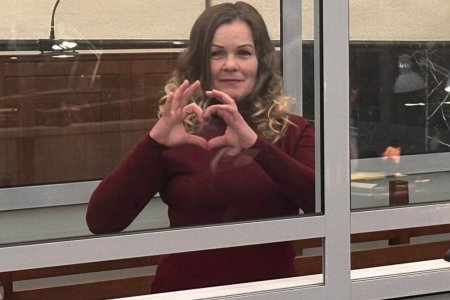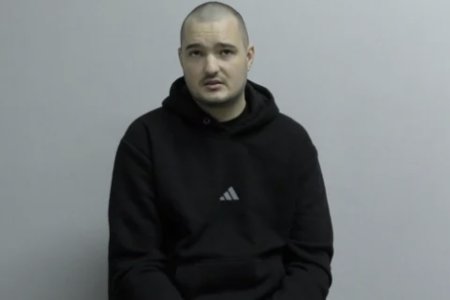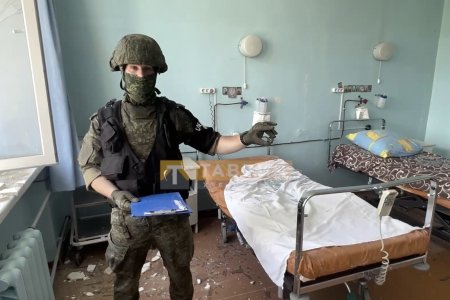
The NGO Prisoners’ Protection of Ukraine (referred to as “PPU”), along with international and national human rights organizations, continues actively working to repatriate prisoners forcibly deported from the occupied territories of Ukraine. Through these efforts, PPU has managed to return home at least 260 prisoners who were victims of forced displacement.
Since the beginning of the full-scale Russian invasion, the number of inmates in the occupied territories has increased significantly. In 2014, when the Russian Federation began its aggressive actions against Ukraine, there were approximately 16,000 inmates in 36 penitentiary institutions in Donetsk and Luhansk oblasts, according to the aggregate data of KHPG. Twenty-nine of these institutions were situated in areas subject to the risk of hostilities or in territories not controlled by Ukraine. After the military invasion on February 24, 2022, according to official data, the number of such institutions increased by 11, and the number of prisoners increased by almost 3,100. Among them were prisoners from the Kherson and Mykolaiv oblasts who were deported to the RF territory, as well as those who remained in penitentiary institutions in the temporarily occupied territories. Prisoners are one of the most vulnerable groups and are often forgotten.
The scale of the problem
Between November 3 and 6, 2022, occupation authorities started to deport en masse to the Russian Federation almost all convicts/prisoners from the penitentiary institutions of the Kherson and Mykolaiv oblasts located in the occupied areas. It is estimated that deportation covered about 1800-2000 people, of whom about 1000 are sick. This figure includes 384 people with tuberculosis who were treated in Hola Prystan Correctional Colony #7 and Snihurivka Correctional Colony #5, as well as 704 people who were treated in a multidisciplinary hospital in Dar’yivka Correctional Colony #10.
According to the official data of the Ministry of Justice of Ukraine, as of February 24, 2022, the penal institutions of the Kherson and Mykolaiv oblasts contained the following number of inmates:
- Northern Correctional Colony No. 90 — 838 persons
- Hola Prystan Correctional Colony No. 7 — 231 persons
- Snihurivka Correctional Colony No. 5 — 98 persons
- Dar’yivka Correctional Colony No. 10 — 704 persons
- Kherson pre-trial detention center — 286 persons
It is known that Ukrainian prisoners are currently being held in at least 11 penal colonies in the Russian Federation, including colonies #2, #11, #5, and #14 in the Krasnodar Krai, colonies in the Rostov oblast and the Republic of Mordovia, as well as in the Autonomous Republic of Crimea.
Prerequisites for repatriation and administrative obstacles
After the expiration of the sentences imposed by Ukrainian courts, the Russian courts recognized forcibly transferred Ukrainian citizens who did not have identity documents as illegal migrants. Then, they were detained for deportation and held in the Centers for the Temporary Detention of Illegal Immigrants (CTDI). Thus, they could not return to their homeland. As to former convicts with Ukrainian passports, the Russian authorities brought them to the border with Georgia or Latvia.
The Cabinet of Ministers of Ukraine (CMU) Decree No. 1201 of October 21, 2022, “On the Implementation of a Pilot Project on the Issuance in Ukraine of a Personal Certificate for Return to Ukraine,” had to resolve this problem by allowing relatives to obtain a certificate of return to Ukraine while the person to be returned was outside Ukraine. After receiving this certificate, Ukrainian citizens could return to Ukraine through third countries.
However, on April 18, 2023, CMU adopted Decree No. 339. Clause 5 of this Decree contained the following reservation: “The State Migration Service following the Decree of the Cabinet of Ministers of Ukraine No. 1201 of October 21, 2022, “On the Implementation of a Pilot Project on the Issuance in Ukraine of a Personal Certificate for Return to Ukraine” (Official Gazette of Ukraine, 2022, No. 85, p. 5281) shall issue a certificate of return to Ukraine to the deported after February 24, 2022, to the territory of the aggressor state citizens of Ukraine, or persons recognized by Ukraine as stateless persons, or stateless persons permanently residing in Ukraine on condition that their freedom of movement is not restricted or has not been restricted, including in the territory of a state recognized as the aggressor state, and that they were forced to leave or abandon their place of residence by eviction or other coercive actions from the territory in which they were legally present.” This clause made it impossible for Ukrainian citizens held in Russia in CTDIs to obtain a certificate of return to Ukraine.
The reservation directly violated Article 33 (2) of the Constitution of Ukraine and Article 3 (2) of the Constitution of Protocol No. 4 to the Convention for the Protection of Human Rights and Fundamental Freedoms. According to these provisions, Ukrainian citizens cannot be deprived of the right to enter the territory of Ukraine. Therefore, it should be immediately canceled.
We submitted to the authorities the numerous appeals containing copies of the State Migration Service (SMS) decisions to refuse to issue certificates of return to Ukraine to former convicts who were deported by the occupiers to the occupied territory and are being held in CTDIs and cannot return to the territory of Ukraine. These decisions are based on Clause 5 of the CMU Decree No. 339 of April 18, 2023.
We emphasized that Ukrainian citizens who had been deported by the occupier to its territory and placed in CTDIs there were unable to return to Ukraine due to Clause 5 of the CMU Decree No. 339 of April 18, 2023. We demanded the immediate resumption of the issuance of return certificates to Ukrainian citizens whose freedom of movement had been restricted, particularly those detained in a state recognized as an aggressor state.
Over time, Russian authorities began reclassifying verdicts from Ukrainian courts according to Russian law, specifically for prisoners with less than six months remaining in their sentences. This applies massively to prisoners transported to the Krasnodar Krai or the Autonomous Republic of Crimea. Later, within two months, they receive a ruling to change their sentence and are released.
Paths to repatriate deportees
Return home through the Kolotylivka-Pokrovka checkpoint
According to our observations, there are several groups of former prisoners who can leave Russia through this checkpoint:
- The first group includes prisoners who remained in the occupied territories of Ukraine. It amounts to more than 1,000 people. This group includes inmates of Melitopol Correctional Colony #144 (women’s colony), Pryazovsk Correctional Colony #107 (women’s colony), Veselivsk Correctional Center #8, Prymorska Correctional Colony #145, Mariupol pre-trial detention Center, and Starobilsk pre-trial detention center. They remained in these institutions during the Russian occupation and, after their release, left for the Ukrainian government-controlled territory through the Kolotylivka checkpoint.
- The second group includes persons deported from Kherson penitentiary institutions to the Krasnodar Krai. They were initially transferred from the occupied Kherson oblast to the Krasnodar Krai of Russia and later moved to Kerch in occupied Crimea. In Kerch, their sentences are adjusted, leading to a one-month sentence reduction in practice. After release, they are going to Kolotylivka along the route: Kerch — Rostov — Belgorod — Krasnaya Yaruga — Kolotylivka — Sumy.
- The third group includes persons deported from Kherson penitentiary institutions to Chongar. Russian security forces transferred some of these prisoners to the occupied Chongar in the Kherson oblast, where they were compelled to construct a new pre-trial detention center for the Russian occupation forces. After the end of their imprisonment in Chongar, the released persons traveled to the territory controlled by Ukraine along the route: Mariupol — Rostov — Belgorod — Krasna Yaruga — Kolotylivka.
- The fourth group includes individuals deported to Correctional Colony #20 for prisoners suffering from tuberculosis in the town of Shakhty, Russia. After the Russian invasion, prisoners suffering from tuberculosis from Hola Prystan Correctional Colony #7 and Snihurivka Correctional Colony #5 were transferred to Correctional Colony #20 in Shakhty, Rostov oblast. After being released from this colony, they also left Russia through the Kolotylivka checkpoint.
The procedure for leaving Russia through the Kolotylivka checkpoint depends on the availability of original documents. Individuals with original documents quickly cross the border into Ukraine. Persons without original documents face much more complex situations. Until the end of 2023, Russian border guards allowed people to cross the border showing photocopies of their passports. If a person did not have such copies, the PPU would help obtain them through relatives and Ukrainian authorities. However, this practice changed at the end of 2023, and now former prisoners are not allowed to cross the border without their original documents.
These changes are related to Putin’s September 29, 2023 decree, which provides for exit from the country based on an identity card issued by the Russian Ministry of Internal Affairs. The ID card takes 30-40 days to be issued, and you need to officially apply to the Russian MIA to obtain it.
Previously, obtaining an ID after release took 30-40 days, but now the process has been accelerated because penitentiary institutions submit applications for issuing an ID a month before release. Prisoners who are transferred to Kerch apply for issuing the IDs while continuing to serve their sentences. After their release, they receive their IDs. Sometimes, they have to wait for up to 7 days. If the ID is not requested in advance, former prisoners have to wait 30-40 days.
After former Ukrainian prisoners receive their IDs, Russian border guards allow them to leave Russia. At the Ukrainian border, they must present at least a copy of a document confirming their Ukrainian citizenship. The absence of such a document can lead to a person’s detention at the border until the migration service confirms their identity. This can be challenging, for example, on weekends when the service is not working. Usually, the State Border Guard Service promptly contacts the SMS to confirm the person’s identity.
Former prisoners encounter difficulties while waiting for return certificates to enter Ukraine via the Kolotylivka-Pokrovka checkpoint. First, they have to stay somewhere for several days. They are accommodated in hotels or hostels in Kolotylivka or Kerch, where the NGOs Russia Behind Bars (RBB) and PPU cover the costs. These NGOs also provide telephone communication and food. Secondly, there are problems in dealing with individuals who are dependent on alcohol or drugs. If there is any alcohol or substance misuse, support for such individuals is terminated. Thirdly, some prisoners refuse to return to Ukraine for fear of mobilization despite the PPU’s support.
Return home through Georgia
The second path to return is through Georgia, which also has its peculiarities. As we have already mentioned, after the occupation of certain Ukrainian territories in 2022, many prisoners were deported to Russia and placed in penal colonies in the Krasnodar Krai and Volgograd oblast. Upon completion of their sentences imposed by Ukrainian courts, these individuals were released but immediately detained on new charges of violating Russian migration laws. Russian authorities did it even though the deportation of these people from Ukraine to Russia was illegal and forced. The Ukrainian prisoners were charged with administrative offenses, fined, and placed in the Centers for the Temporary Detention of Illegal Immigrants (CTDI) in Gulkevichi, Ust-Labinsk and Novoukrainskoye in the Krasnodar Krai, and Volgograd. This practice continues today in the Volgograd oblast.
Currently, the majority of Ukrainian prisoners who pass from RF to Georgia through the Lars checkpoint were previously released from the penal colonies of the Volgograd oblast and then were put in CTDIs.
Persons detained in these centers for illegal immigrants have minimal access to medical care. For example, prisoners with HIV in penal colonies have access to antiretroviral therapy. In contrast, this therapy is not provided in the CTDIs, which often depends on the nationality of the prisoners. None of the pre-trial detention centers where the prisoners transferred from Kherson are held have proper medical equipment or qualified medical staff. Those living with HIV are the most affected, as they are not provided with the necessary therapy. This situation has already been documented in individual communications to the UN Committee Against Torture and the UN Human Rights Committee filed by EPLN (European Prisoners’ Litigation Network), PPU, and RBB, in particular in the cases of Andriy Artemyev v. Russia (communication No. 4233/2022) and Kolesnichenko v. Russia (communication No. 4488/2023). In both cases, the Committee pointed out the need to provide medical care to detainees in the centers for illegal immigrants. In both cases, the HRC granted the authors’ requests for interim measures.
It is important to note that the situation has changed somewhat since September 2023, when Putin’s decree allowing a person to leave Russia with an ID issued by the Russian Ministry of Internal Affairs was adopted. Until then, Ukraine and other countries had been refusing entry to those who did not have original documents, and the Russians were trying to send such former prisoners to Latvia and Georgia. Georgia began accepting such persons through the Lars checkpoint only in April-May 2023.
According to the new rules, prisoners without original documents can now receive a temporary ID in the CTDI, allowing them to leave Russia. After receiving such IDs, they are deported to Georgia via Lars checkpoint.
In practice, there are two categories of Ukrainian prisoners held in the CTDIs:
- Those without original documents are awaiting ID issuance and gathering a group of around ten people for transportation to the Lars checkpoint.
- Those with original documents wait for the appropriate number of people to be gathered for transportation to Lars checkpoint.
The procedure for crossing the Georgian border also depends on the availability of documents. Georgian border authorities usually allow people with original documents to enter Georgia faster, almost immediately. Those without original documents can wait up to six weeks in the buffer zone at the Lars checkpoint until the Ukrainian authorities confirm their identity. After verification, Georgia allows them entry, and within a week, they receive certificates of return from the Ukrainian embassy and can travel to Ukraine via Moldova.
Conditions of stay of the former Ukrainian prisoners at the Lars checkpoint are causing significant concerns. The conditions in the buffer zones are evidently inadequate and unsuitable for any long-term stay. The people held here risk being returned to Russia, and their stay in the buffer zone is effectively equivalent to detention without legal grounds. The lack of opportunity to challenge the legality of detention and the lack of access to legal aid and interpretation present significant challenges for these people.
The EPLN and PPU have identified several essential problems faced by former Ukrainian prisoners while waiting for their documents to be verified and certificates of return to be issued. Firstly, our mandate focuses on former prisoners from Kherson penitentiary institutions. Still, there are also other people at the Lars checkpoint, such as victims of human trafficking who served their sentences in the Russian Federation. Secondly, the Georgian authorities do not provide food and medical care to people staying in the buffer zone at the Lars checkpoint; only volunteers from Tbilisi assist them. Thirdly, former prisoners who arrive in Georgia do not receive state support for living expenses; instead, the NGO Volunteers of Tbilisi covers their costs. Also, the state does not fund travel expenses, and the PPU covers the cost of tickets for returning to Ukraine through Moldova. Another problem is dealing with individuals who are dependent on psychoactive substances. If there is any substance misuse, support for such individuals is terminated. In addition, some ex-prisoners do not want to return to Ukraine due to fears of mobilization: only 5 out of 10 people plan to return. Finally, volunteers in Tbilisi face an acute financial shortage, and new laws jeopardize their activities.
Humanitarian aid from the NGO PPU
PPU provides returnees with transportation tickets, cash, clothing, and food and helps them solve individual problems (e.g., restoring IDs and housing issues). PPU also interviews former prisoners to collect evidence of war crimes. Finally, PPU arranges their meetings with investigators to document evidence of their illegal deportation and other human rights violations.
Problems after returning to Ukrainian territory
The first problem that returned ex-prisoners face is discrimination at the Ukrainian border. There is a volunteer humanitarian center at the border where all Ukrainian citizens can receive free psychological, legal, and humanitarian assistance. However, our clients have been denied such assistance for 1.6 years because they are former prisoners and may have infectious diseases.
This denial created significant difficulties for returnees who did not have access to the necessary support during their stay at the border. The lack of access to psychological assistance, legal advice, and humanitarian support put them in a highly vulnerable position, especially given their experience of imprisonment and deportation.
Our numerous complaints regarding discrimination to the Ministry of Reintegration of Temporarily Occupied Territories of Ukraine (MinReintegration) have not had the desired effect. Despite clear signs of violations of these persons’ rights, our appeals did not lead to any changes in assistance policy or practice.
The situation began to improve after we met with a representative of the Ombudsman in the Sumy oblast. After this meeting, our clients began to receive proper support. In particular, now returned ex-prisoners are placed at night in a shelter that provides them with basic accommodation and food needs. This is an essential step in ensuring that former prisoners returning to Ukraine are treated fairly and humanely.
However, challenges remain that need to be further addressed. It is necessary to ensure sustainable access to all types of assistance for returned ex-prisoners, regardless of their past. It is also essential to continue monitoring the situation and cooperating with state authorities and human rights organizations to ensure that the rights of these persons are respected and to prevent any forms of discrimination in the future.
Detainment in Ukraine upon return to continue serving sentence
Persons who have not fully served their sentences under Ukrainian law are placed in pre-trial detention centers (SIZO) for three days to three months. They have been deprived of benefits such as parole and commutation of sentence. Most of them were subjected to ill-treatment during their stay in the penal colonies of the Russian Federation and need rehabilitation. Ex-prisoners often arrive at SIZOs in prison clothes without personal care products and necessities. SIZOs do not provide them with clothing, necessary items, etc., which creates additional humanitarian problems and complicates their reintegration into society. According to the UN Standard Minimum Rules for the Treatment of Prisoners, prisoners have the right to adequate medical care and basic needs.
Establishing the legal fact of fully serving a sentence
Due to the lack of information about their release in official registers, former prisoners face severe difficulties restoring personal documents and integrating into society. This applies to those prisoners whose sentences have expired at the time of their return to Ukraine. The lack of official information makes it difficult for them to register, restore their rights, and meet their basic needs. Former prisoners applying to the Ministry of Internal Affairs for a police clearance certificate receive documents stating that no information is available about their release. This greatly complicates their efforts to restore personal documents, register their place of residence, register for military service, etc. In addition, it impedes their integration into society and the enjoyment of fundamental rights.
Mobilization after return to Ukraine
Many returnees do not have time to undergo a medical examination and restore their documents, as they are immediately taken to the military registration and enlistment office. It should be remembered that occupation authorities deported to Russia prisoners from three prison hospitals, two of which treated tuberculosis patients. All these prisoners’ documents were destroyed, further complicating their situation. Returnees need time to restore their documents and undergo medical examinations. The inability to achieve this creates additional stress and complicates their adaptation after a return. According to international human rights standards, everyone has the right to health and proper medical care.
Lack of a place of residence
Finding a place to live is difficult for returned ex-prisoners due to the temporary occupation of the territories where they previously lived. Most of them cannot return to their native places because of the safety concerns or destruction of their homes. This leads to social maladjustment and additional economic difficulties. We observe complete discrimination against returned ex-prisoners. They are not accommodated in temporary premises or shelters; they are refused everywhere.
Status of deported prisoners
In order to safeguard the rights of deported prisoners, it is crucial to officially acknowledge their status at the state level and implement legislative reforms that designate deported prisoners as civilian hostages. This would entitle them to appropriate legal status and support from the state. Clear procedures for applying for civilian hostage status should be established, including the possibility of review and appeal in case of refusal. To achieve the recognition of the status of deported prisoners at the national and international levels, international support and advocacy are also essential.
Undesirables in Europe and the SIS database
This topic will be covered in detail in a separate article, which will address the ban on entry to the Schengen area for former prisoners. The article is currently under preparation.
Conclusion
Protecting the rights of prisoners deported to Russia from the occupied territories of Ukraine is a critical task that requires a comprehensive approach and close cooperation between government agencies, NGOs, and international partners. Illegal deportation, inadequate conditions of detention, lack of medical care, and difficulties in returning to Ukraine are serious human rights violations that require urgent action.
Implementing the proposed solutions will significantly improve the legal standing and rights of deported prisoners, facilitate their successful reintegration into society, and ensure compliance with international human rights standards. Implementing these measures will also help Ukraine fulfill its international obligations and strengthen its human rights protection system.
The key elements of a successful solution to the problems described in this article are coordinating the efforts of national and international organizations, adopting the necessary legislative changes, ensuring proper detention conditions, and supporting returned persons at all stages of their social reintegration. Only in this way can we ensure that deported prisoners are treated with dignity and protected, which is an essential step toward restoring justice and law and order in Ukraine.
The problems of deported prisoners should be addressed considering all legal, administrative, and social aspects. The state must provide all the necessary conditions for the return and reintegration of deportees, including humanitarian assistance, legal support, and social services.
It is also necessary to continue advocacy at the international level, engaging international organizations and partners in protecting the rights of deported prisoners. It is essential to raise the international community’s awareness of the problem of illegal deportation and human rights violations faced by Ukrainian prisoners in Russia and the occupied territories.
Restoring justice for deported prisoners is an important step towards strengthening the rule of law and protecting human rights in Ukraine. Resolving this task requires a systematic approach and coordination of efforts at the national and international levels to ensure that deported prisoners are treated with dignity and successfully reintegrated into society.



